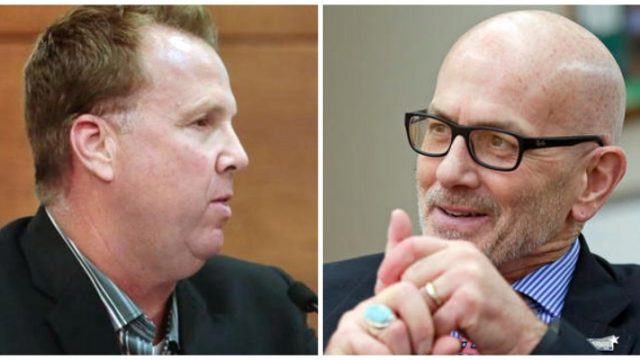We May Need to Rethink How Recall Elections Work in North Dakota

Recall elections have been in state headlines a lot recently.
An effort to recall Fargo City Commissioner Dave Piepkorn has belly flopped, which I’m glad of. Despite the recall committee declaring publicly that they had, or would have, enough signatures to put Piepkorn on the ballot it turns out they couldn’t muster the requisite number. Perhaps a commentary on the Fargo public’s view of Piepkorn’s push for more information about refugee resettlement. The recall activists would have us believe that it’s a manifestation of bigotry and xenophobia, but it now seems that this is the view of a small (though admittedly loud and angry) minority.
Meanwhile, a recall effort for Bismarck Mayor Mike Seminary marches forward. As I wrote yesterday, the petitions have been completed and BCI agents are in the process of verifying the signatures. It fell to that law enforcement agency because the city government, as well as the local police department, felt they have too many conflicts of interest.
[mks_pullquote align=”right” width=”300″ size=”24″ bg_color=”#ffffff” txt_color=”#000000″]It’s good that citizens have the ability to recall their public officials, but I think the situations in Fargo and Bismarck reveal some aspects of the law governing recalls which could perhaps use some tweaks.[/mks_pullquote]
It’s good that citizens have the ability to recall their public officials, but I think the situations in Fargo and Bismarck reveal some aspects of the law governing recalls which could perhaps use some tweaks. Or, at least, a debate about tweaks.
First, I think we may need a uniform process for validating petition signatures. It’s a very good thing, in the instance of the Bismarck recall, that local officials recognized their conflicts and passed responsibility on to someone else. But is the Bureau of Criminal Investigation the right agency to handle it? Some of the organizers of the Bismarck petition, while making sure to emphasize that the BCI has been extremely professional in their handling of the process, have expressed concern at having a cop contacting people because they signed a petition. It can feel intimidating, they tell me, and that’s fair. Plus, it seems to me that serving as administrators over a political process is not the best use of law enforcement resources.
Second, the timeline for recalls needs some work. If the Seminary recall goes forward the special election will be held with less than a year on the incumbent’s term. The same would have been true had the Piepkorn recall been successful.
Recall elections cost a lot of money. They take a lot of time too. Remember that if a given recall effort is successful it kicks off a sort of mini campaign cycle. Candidates have to be chosen. Committees formed. Campaigns organized. All to choose who will fill the last few months of an office.
That seems wasteful.
For the first problem, I think the solution is probably to institute some sort of policy through the Secretary of State’s office to verify recall petitions. A uniform process for verification, administered by civilians and not gun-toting cops, would be better for all involved.
As for the second problem, I’m not sure what the solution is. Maybe there isn’t one. But it seems worth having a debate about.




